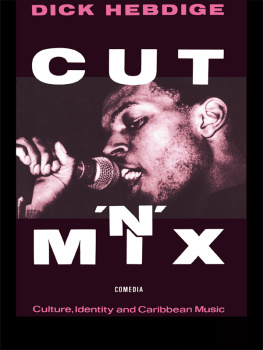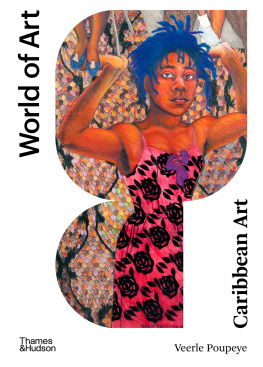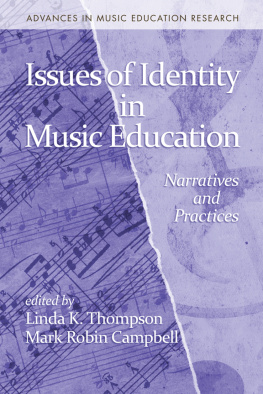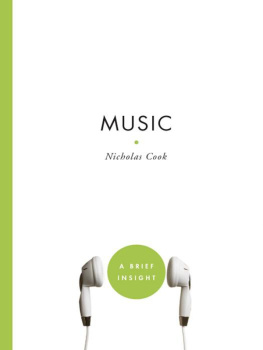Hebdige - Cut n mix culture, identity and Caribbean music
Here you can read online Hebdige - Cut n mix culture, identity and Caribbean music full text of the book (entire story) in english for free. Download pdf and epub, get meaning, cover and reviews about this ebook. City: London;New York, year: 2003;2011, publisher: Taylor & Francis Ltd;Routledge;Taylor & Francis Group, genre: Religion. Description of the work, (preface) as well as reviews are available. Best literature library LitArk.com created for fans of good reading and offers a wide selection of genres:
Romance novel
Science fiction
Adventure
Detective
Science
History
Home and family
Prose
Art
Politics
Computer
Non-fiction
Religion
Business
Children
Humor
Choose a favorite category and find really read worthwhile books. Enjoy immersion in the world of imagination, feel the emotions of the characters or learn something new for yourself, make an fascinating discovery.
Cut n mix culture, identity and Caribbean music: summary, description and annotation
We offer to read an annotation, description, summary or preface (depends on what the author of the book "Cut n mix culture, identity and Caribbean music" wrote himself). If you haven't found the necessary information about the book — write in the comments, we will try to find it.
Cut n mix culture, identity and Caribbean music — read online for free the complete book (whole text) full work
Below is the text of the book, divided by pages. System saving the place of the last page read, allows you to conveniently read the book "Cut n mix culture, identity and Caribbean music" online for free, without having to search again every time where you left off. Put a bookmark, and you can go to the page where you finished reading at any time.
Font size:
Interval:
Bookmark:

A Comedia book
First published in 1987 by
Methuen & Co. Ltd
Reprinted 1990, 1993, 1994, 1997 and 2000 by Routledge
11 New Fetter Lane, London EC4P 4EE
29 West 35th Street, New York, NY 10001
Routledge is an imprint of the Taylor & Francis Group
This edition published in the Taylor & Francis e-Library, 2005.
To purchase your own copy of this or any of Taylor & Francis or Routledges collection of thousands of eBooks please go to www.eBookstore.tandf.co.uk.
1987 Dick Hebdige
All rights reserved. No part of this book may be reprinted or reproduced or utilized in any form or by any electronic, mechanical, or other means. now known or hereafter invented, including photocopying and recording, or in any information storage or retrieval system, without permission in writing from the publishers.
British Library Cataloguing in Publication Data
Hebdige, Dick
Cut n Mix: Culture, identity and Caribbean music.
1. MusicCaribbean area
I. Title
781.7091821 ML3565
ISBN 0-203-35928-3 Master e-book ISBN
ISBN 0-203-37184-4 (Adobe eReader Format)
ISBN 0-415-05875-9 (Print Edition) (Paperback)
Cover Design by Andy Dark
For J.L.P. (and I dont mean the Jamaica Labour Party)
But what are roots? Music is shapeless, colourless (George Oban)
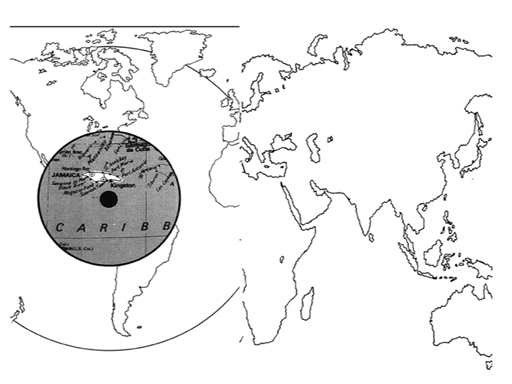
In his book There Aint No Black In The Union Jack (Hutchinson, forthcoming), Paul Gilroy has suggested that music functions within the culture of the black diaspora as an alternative public sphere. Sometimes a reggae toast or a soul rap might consist of little more than a list of names or titles. Naming can be in and of itself an act of invocation, conferring power and/or grace upon the namer: the names can carry power in themselves. The titles bestowed on Haile Selassie in a Rastafarian chant or a reggae toast or on James Brown or Aretha Franklin in a soul or MC rap testify to this power. More importantly in this context, the namer pays tribute in the name check to the community from which (s)he has sprung and without which (s)he would be unable to survive. The speaker or singers individual voice is drowned beneath the sea of names which it summons up around itself.
There are many people without whom this book could not have been written. I would like to thank Albert on the door, Bonk, Mikey, Steve Gibbons, Pete King, Martin and Simon Fuller, Norrie Davis, Paul, Vron and Marcus, Greg, Rosa and David, Sam Rosenberg, Iain Chambers, Roy Bailey, Geoff H, Su Fawcett, my mother and father, Charlie Luck, Griff, Ken Brown, Clinton, Alan Bayes, Larry Grossberg, Red Rum, Clare, Patrick and Edward, Van Cagle, Dave Darby, Polly M, Prudence, Vic Lockwood, Maggie and Trevor, Mo, Peta Legat, Serafina, Steve Bonnett, Richard Madgwick, Paul Swinson, Jessica Lucy Pickard, Jordi Rippoles, Winston at the Three Crowns, Kathy K, and the Golden Eagle (the one that flew away).
I would also like to thank all the singers, musicians, producers, engineers, djs and microphone artists who make the music this book is about. A special word of thanks to: The Skatalites, James Brown, Toots and the Maytals, Ranking Ann, Bob Marley and the Wailers, Big Youth, Jerry Dammers and the Specials with Rico, Don Drummond, Grandmaster Flash and the Furious Five, Peggy Lee, Sly and the Family Stone, Etta James, Miles Davis, Afrika Bambaata, the Soul Sonic Force and the Zulu Nation, Howling Wolf, Smokey Robinson and the Miracles, Shirley Brown, Gene Vincent, Gregory Isaacs, Dion, Exuma, John Coltrane, Dennis Brown and Aswad, Niney, Barbara Jones, I Roy, Elvis Presley, Lee Scratch Perry, Joe Gibbs, Esther Phillips, Mickey and Sylvia, Tina and Ike, The Angels, Gram Parsons, Shirley Ellis, Jimmy Hendrix, Sam Cooke, Eek a Mouse, Billie Holliday, Dinah Washington, Booker T and the MGs, Patsy Cline, Pharoah Saunders, Bo Diddley, Malcolm McLaren, John Lydon, Ben E King, The Fatback Band, The JBs, Fela Kuti, U Roy, Roland Kirk, The Yardbirds, Planxty, The Ohio Players, Linton Johnson, The Ronettes, Basil Gabbidon, UB40, Johann Sebastian Bach, Billy Fury, Otis Redding, Hank Williams, Executor, Mighty Sparrow, Black Stalin, Prince Buster, Count Ossie, Dennis Bovell and Steel Pulse.
I should like to thank all the writers, radio and music business personnel whose work I have used, quoted or otherwise borrowed from: Dotun Adebayo, Verena Reckford, Andrew Carr, J L Collier, Robert Elms, Carl Gayle, Sheryl Garratt, Paul Gilroy (again), Tony Harrison, Steven Hager, Steven Harvey, John Hind and Stephen Mosco, Simon Jones, Junior Lincoln, Amanda Lipman, Vic Lockwood, Jeremy Marre and Hannah Charlton, Colin McGlashan, Miss P, Mr Fresh and the Supreme Rockers, George Oban, Joe Owens, J Plummer, Penny Reel, Vivien Goldman, David Simmons and David Toop.
I should especially like to thank Albert Goldman for the Elvis extracts in the Pre-Mix, Alex Haley for the extract from Roots in , Stephen Davis and Chris May for all their work on music it is always well researched, well written and of a consistently high standardand Ive drawn a great deal on the articles Chris May wrote for Black Music on reggae in the 1970s and on Stephen Davis two books on reggae musicReggae Bloodlines and Reggae International. Thanks, too, to Ed Lee for doing a fine edit on the first version of the Original Cut. And thanks, finally, to Dave Morley of Comedia for his patience, tact and resourcefulness in dealing with a succession of impossible requests, for the imagination and hard work he has brought to bear on this project. And to Andy Dark for designing the visual mix.
A special word of thanks to Patrick Ward for the laughs and for the poetry; to Mike Stanhope for sounds and brotherhood; to Mike Horseman for being Major Spar, Vinyl King and The Music Man of the Midlands; and to Paul Gilroy for taking so much time and care to answer what must have seemed to him like elementary questions. Without these last four, I wouldnt have been able to undertake, let alone complete, this project. Finally thanks to Amstrad who have brought William Burroughs to the High Street by bringing cut n mix technology to bear upon the word.
The title of this book may appear misleading. The words cut and mix have particular connotations within popular music and the record industry. They refer to editing procedures. And when placed together they tend to summon up the image of a sound engineer working at an editing desk or a hip hop dj scratching sounds together at a turntable. Both these figures will be invoked in what follows, but this is not what the book is principally about. Instead what I was interested in when I was writing this book is the relationship between Caribbean music and cultural identity. I have tried to conceive that relationship in dynamic terms. Rather than tracing back the roots of contemporary forms of Caribbean music to their source, Ive tried to show how the roots themselves are in a state of constant flux and change. The roots dont stay in one place. They change shape. They change colour. And they grow. There is no such thing as a pure point of origin, least of all in something as slippery as music, but that doesnt mean there isnt history. I hope the two notes clarifyif nothing elsethe intention that motivated the pages that follow.
Cut n mix is the music and the style of the 1980s just as rock n roll and rhythm n blues formed the bedrock for the musics and the styles that have made such an impact on our culture since the 1950s. This book doesnt try to tell the whole story because the
Font size:
Interval:
Bookmark:
Similar books «Cut n mix culture, identity and Caribbean music»
Look at similar books to Cut n mix culture, identity and Caribbean music. We have selected literature similar in name and meaning in the hope of providing readers with more options to find new, interesting, not yet read works.
Discussion, reviews of the book Cut n mix culture, identity and Caribbean music and just readers' own opinions. Leave your comments, write what you think about the work, its meaning or the main characters. Specify what exactly you liked and what you didn't like, and why you think so.

